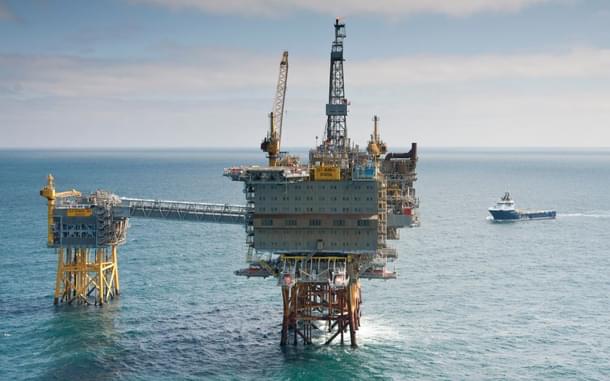Infrastructure
Major Energy Crisis Averted In Europe As Oil And Gas Workers In Norway End Industrial Strike
India Infrahub
Jul 06, 2022, 12:02 PM | Updated 02:52 PM IST
Save & read from anywhere!
Bookmark stories for easy access on any device or the Swarajya app.


A major energy crisis in Europe has been averted for now as Norway's oil and gas workers ended their strike after the government on Tuesday intervened to end a strike in the nation's energy sector that had reduced oil and gas output.
Oil and gas from Norway, Europe's second-largest energy supplier after Russia, is in high demand as the country is seen as a reliable and predictable supplier, especially with Russia's Nord Stream 1 gas pipeline due to shut for maintenance from 11 July for ten days.
The strike added to the fears of a big energy crisis across Europe, where Russian export cutbacks have reduced natural gas supplies, and fuel prices have soared in recent weeks.
The dispute
Norwegian offshore oil and gas workers went on strike demanding wage hikes to compensate for rising inflation on Tuesday, the first day of planned industrial action that had threatened to cut the country's gas exports by almost 60 per cent and exacerbate supply shortages linked to the Ukraine war.
Offshore workers from one of the Norwegian oil industry's three main trade unions had carried out strike action earlier Tuesday, affecting production on three offshore fields.
The Norwegian government is proposing compulsory wage arbitration to resolve the industrial dispute between the trade union Norwegian Organisation of Managers and Executives (Lederne) and Norwegian Oil and Gas (NOG). Last Thursday, Lederne trade union members had turned down a pay rise between 4 per cent and 4.5 per cent that companies and union leaders had negotiated.
Norway's other two leading oil and gas labour unions - the Norwegian Union of Industry and Energy Workers (IE) and the Norwegian Union of Energy Workers (Safe), which between them represent about 85 per cent of operator employees on the Norwegian continental shelf (NCS), had accepted the deal and did not strike.
Under the forced settlement by the government, workers will receive the same terms as the two other oil unions that had negotiated deals with employers. However, the specifics will be agreed upon later, said Ingvarsten, the union leader.
Escalation avoided
Norway plays a vital role in supplying gas to Europe, and the planned escalation of the strike would have had serious consequences for European countries, especially the UK, which gets a lot of its gas from Aasta Hansteen - the biggest oilfield in Norway.
Norway's biggest operator, Equinor, initiated a shutdown on three fields in the North Sea - Gudrun, Oseberg South and Oseberg East on Tuesday - as a result of the strike. On the first day of the strike, oil and gas output was reduced by 89,000 barrels of oil equivalent per day (boepd), of which gas output makes up 27,500 boepd, Equinor said.
The industrial action was expected to expand to three other fields - Kristin, Heidrun and Aasta Hansteen - from midnight on Wednesday.
By Saturday, the strike would have cut daily gas exports by 1.117 million barrels of oil equivalent (boe), or 56 per cent of daily gas exports, while 341,000 barrels of oil would have been lost, the Norwegian Oil and Gas (NOG) employers' lobby said.
The Norwegian government has the power to intervene in union disputes only in cases of danger to life and health. Such powers have also previously been used to end petroleum sector strikes and to protect Norway's reputation as a reliable gas supplier to Europe.





